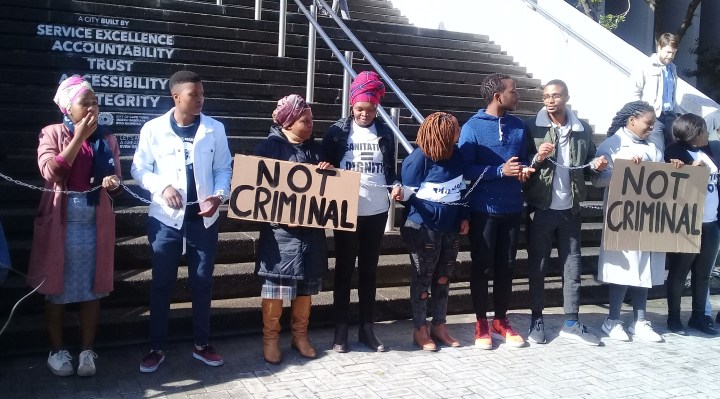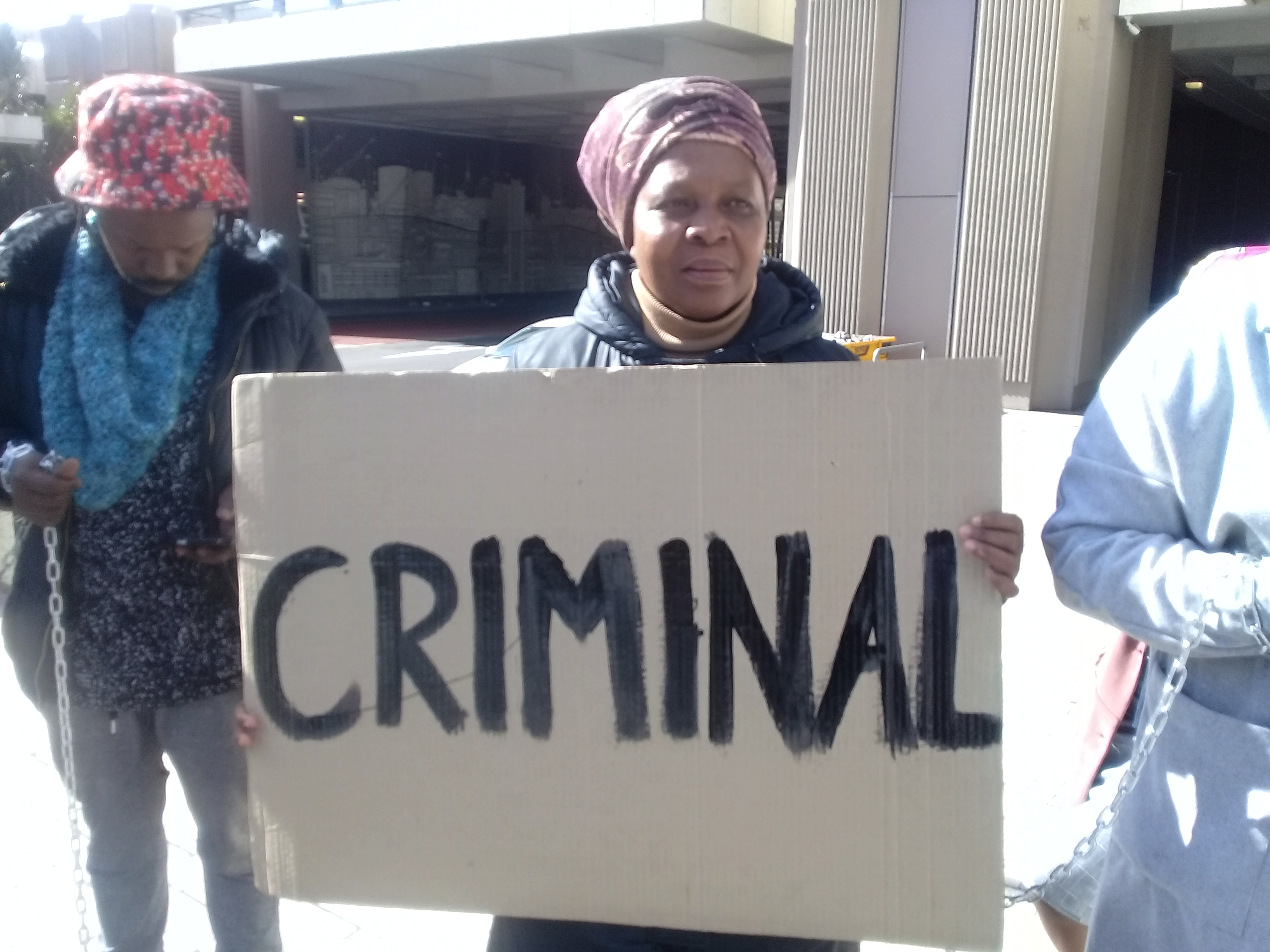South Africa
Activists re-enact the 2013 arrest of the SJC10, in protest against Gatherings Act

The Social Justice Coalition (SJC), along with other advocacy groups, held a demonstration in Cape Town against the Regulation of Gatherings Act on Friday. The act prohibits people of more than 15 from assembling without notice. SJC argued that the act is unconstitutional and an apartheid-era law.
The Regulation of Gatherings Act (RGA) of 1993 entails that organisers of gatherings of more than 15 people should submit a notice to city authorities of their intention to protest. On 11 September 2013, 21 SJC members and supporters were arrested for organising and taking part in an illegal protest.
The 21 had gathered at the Cape Town Civic Centre against poor sanitation in informal settlements. They chained themselves to the railings of the Civic Centre while they waited for the mayor to address them.
This was an act of civil disobedience as the protestors had not submitted a notice to protest and were arrested. Of the 21, 10 were identified as convenors and were charged under the RGA. They became known as the SJC10.
Judge Thandazwa Ndita of the Western Cape High Court handed down a judgment in January 2018 acquitting the SJC10 of their charges under the RGA. The judgment stated that, “the limitation is not reasonable and justifiable in an open and democratic society, based on the values of freedom, dignity and equality.”
GroundUp reported that Ndita also said that the criminal sanction in the act was “disproportionate to the offence” and that it was suggested that the state could impose administrative penalties because fines do not “carry with them the stigma” of a criminal conviction.
The South African Police Services (SAPS) is challenging Judge Ndita’s finding, and the Constitutional Court is set to make a ruling on 21 August 2018.
At a press conference organised by members of the Social Justice Coalition 10 (SJC10), Social Justice Coalition (SJC), Right2Know (R2K) and Equal Education (EE) on 17 August 2018 at the Cape Town Civic Centre, a group of 15 re-enacted the 2013 arrest. Fifteen of them collectively held a chain at the Civic Centre whilst carrying placards written “criminal” on them. One member joined in as Axolile Notywala, SJC Secretary commented, “Protest is one of the ways poor people can use to challenge government. There are 15 of us here today, as soon as one {more} person joins, we are now criminals.”
The SJC argued that some sections of the RGA are regressive because the RGA was passed in the apartheid era. SJC argued that the act should be challenged in democratic South Africa to protect people’s rights to assembly and peaceful protest, especially the poor.
Notywala added, “When the president Cyril Ramaphosa organises his morning walks he is not criminalised, yet the constitution says no one is above the law.” Notywala encouraged those present at the demonstration to join them in protest and carry the chain.
Xoliswa Mbadlisa, 52 and Zingisa Mrwebi, 36 are members of the SJC10 and were among the demonstrators. Mbadlisa commented, “The victory on Tuesday {21 August} will not just be a victory for us but for the whole country.” Mrwebi added, “The criminal record has restricted us from possibly getting jobs, and also me from applying to further my education. If we succeed, it really will be a victory for the country.”

Xoliswa Mbadlisa from Site C, Khayelitsha was arrested under the Regulations of Gathering Act in 2013. She took part in the re-enactment of the protest on Friday, 16 August, 2018. Photo: Hlumela Dyantyi.
Nomacebo Mbayo from Equal Education (EE) said that EE would support the SJC and protest outside the Constitutional Court during the ruling. Mbayo emphasised that when protestors submit notices to gather, they are not asking for permission to peacefully protest but they are notifying the city.
“People are unhappy because the country’s current democracy is not protecting the people on the ground. Our CAPS system teaches children about all these great protests during Apartheid but the court will criminalise them if they gather with more than 15 people. ” said Mbayo. DM


















 Become an Insider
Become an Insider